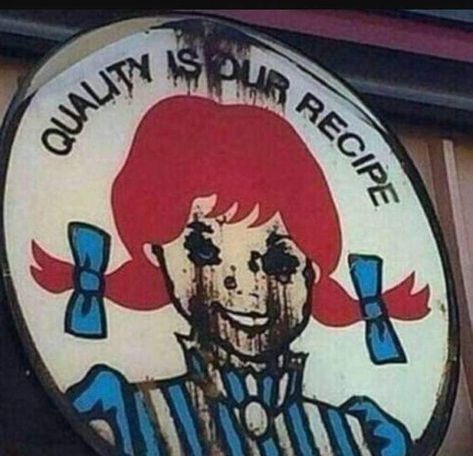An overwhelming majority of what we eat is made from plants and animals. This means that composition of our almost entire food is chemicals from the realm of organic chemistry (carbon-based large molecules). Water and salt are two prominent examples of non-organic foodstuffs - which come from the realm of inorganic chemistry. Beside some medicines is there any more non-organic foods? Can we eat rocks, salts, metals, oxides… and I just don’t know that?
Baking soda is also an inorganic compound.
deleted by creator
That our diet stems from mostly molecules described in organic chemistry can also be the direct result of the fact that there are vastly more molecules considered “organic”: about 19 million are known and the number is growing!
While for anorganic compounds, there are only about 100,000.
The separation into organic and inorganic chemistry is really only done to make it easier to talk about broader subjects in science. We need and use obviously a lot of compounds that aren’t carbon based large molecules.
The word “organic” has a number of different meanings.
organic adjective (OF FOOD PRODUCTION)
- not using artificial chemicals in the growing of plants and animals for food and other products:
- being or coming from living plants and animals
…(skipping a few others)
organic adjective (IN CHEMISTRY)
- (of a chemical substance) containing carbon
So the chemistry definition isn’t the relevant one when applied to food. The “Carbon based molecules” definition isn’t even the original one and it only applies in the context of science, not food.
A number of food additives don’t contain any carbon atoms; if you follow the links from the Wikipedia article on food additives you can find a bunch, for example sodium bisulfate which is a color retention agent.
There are also some interesting cases like the antifoaming agent Polydimethylsiloxane (found in trace amounts in, among other things, Chicken McNuggets) which I believe is technically a hybrid organic/inorganic polymer.
Some people with too much money eat gold-plated food. So in a sense, gold is food, and it’s not an organic molecule.
I’ve seen gold leaf put in food. It doesn’t hurt your body, apparently, but I guess you take nothing of value from it.
If you eat enough you will eventually develop gold plated poo 4-12 hours later, and I think that is something!
Interesting question. I had to look up the definition of food, the story version is it’s essential body nutrients.
You can synthetically derive some vitamins and things like that. But generally I can’t think of anything other than salt and water that’s not organic. You can start breaking down food into vitamins and minerals but that’s not really the intent.
I know animals will chew/gnaw on bones to get some calcium, maybe that.
Synthetic or not has nothing to do with whether something is organic or inorganic. That used to be the distinction 200(?) years ago, it is a bit outdated now.
Edible clay is something that is actually sold as a product for people to eat. It’s not metaphoric. It is exactly what it sounds like.
There’s an MLM that just sells mud, then people eat the mud. I don’t understand.
Many minerals that are quite essential are used by other organisms so we get it that way, but that doesn’t mean we have to. A good example is iron. Rust isn’t a bioavailable form of iron compared to what you’d get from plants and animals, but you could eat rust and make some of the iron in it ferric chloride that you could then use for making hemoglobin. It’s just not very efficient. What you can’t do is get energy from inorganic molecules. We can only get energy from things on the citric acid cycle(or are made up of components of it), alcohols, sugars, fats, and proteins.
Taco Bell.
Technically, e coli counts as organic.
What a fascinating question! I hadn’t previously considered this.
It depends on what you mean by “eat.” Does being able to survive them traveling through your digestive tract count as “eating” something? Does it have to have nutritional value? If the former, any inorganic substance with a low enough LD50 in a low enough dose would count. If it actually has to have nutritional value, youre limited to minerals like Calcium Carbonate (chalk and this isnt organic despite Carbon being in its composition), Potassium Chloride (no salt), Magnesium Oxide (milk of magnesia), Iron Sulfate etc. and any inorganic derivative that has relatively low toxicity.
Calcium carbonate is inorganic because it doesn’t contain hydrogen. Organic compound must have both carbon and hydrogen atoms.
Edit- more specifically the hydrogen and carbon should be covalently bonded and there are still a few exceptions as noted by other comments below.
That’s a false statement. It needs to have carbon-hydrogen non-ionic bonds for it to be organic. Think carbonic acid vs a ketone of some sort.
Not really completely false just missing a piece of information- ie I should have mentioned they be bonded but carbonic acid and ketones are both organic compounds so I’m not sure what you’re trying to say there.
Edit: carbonic Acid is not because there are no C-H bonds.
Carbonic acid is not organic.
According to Wikipedia it is- but I agree after looking at its structure that it is not.
There are no carbon-hydrogen covalent bonds in the structure.
Organic compounds don’t have a strict consensus based definition today. So any matter of fact statement isn’t widely held any longer. It’s just one school of thought so to speak.
You’re right- primarily because science changes as new things are discovered and therefore the definition changes.
I still think the definition I learned with C-H covalent bonds indicating organic has fewer exceptions than other definitions.
Calcium carbonate is inorganic because it is a simple salt. Containing hydrogen has nothing to do with it. Ca(HCO3)2 is just as inorganic.
If you think a molecule needs to contain both H and C to be organic, then fully halogenated propane is inorganic, but as soon as one of the 8 halogen atoms is not substituted it suddenly is organic again. This gets even more absurd with larger molecules like oleic acid C18H34O2. 34 chlorine replacing all H? Inorganic. 33? Organic.
None of those compounds would be stable. Theoretically you’re making a good point for an exception to C-H bonds defining organic chemistry but I bet all of your fully halogenated compounds would degrade and break apart until some number of hygrogens replace the halogens to make it stable.
Point taken tho.
What do you mean would not be stable…? They are more stable than then hydrogenated versions. PTFE is essentially only C and F in endless chain of [CF2].
Calcium carbonate, is the main ingredient in tums, and is the main component of limestone.
…That’s a salt, though, right?
If you’re counting non-NaCl salts as answers, then basically any “mineral” our body needs would probably be delivered at least partly in salt form. Just reading off some multivitamins here:
- Calcium Carbonate
- Chromium Chloride
- Cupric Sulfate
- Potassium Iodide
- Ferrous Fumarate
- Magnesium Oxide
- Manganese Sulfate
- Sodium Molybdate
- Sodium Selenate
- Zinc Oxide
(I haven’t fully checked all of these are salts— But I mean, a lot of of them are blatantly chemical analogues of stuff that definitely is salt (E.G. “Potassium Iodide” vs. “Sodium Chloride”), plus they’re metals bonded to ionic groups so they’re definitely not alloys or covalent molecules or ceramics.)
This is probably because in order for our body to absorb stuff, it basically has be water-soluble, which means salts work quite well.
When eating real food (plants, animals, and fungi), I assume a lot of this won’t be in salt form, but rather it will mostly be bound up in proteins and DNA and such. For example, iron should be primarily in hemoglobin instead of ferrous fumarate. But some of it, for example the potassium, will definitely be technically in the form of dissolved salts/minerals in the fluids inside the food.
You can of course also rearrange the compounds around. For example, this can of Windsor-brand “salt free salt substitute” I have here further lists:
- Potassium Chloride
- Calcium Silicate
- Magnesium Carbonate
You’ll note that these are some of the same components as in the list above, just a different combination. I’m pretty sure any ionic mineral that includes at least one ion that our body needs technically counts as “food”, as long as the other half isn’t poisonous— They should be basically the same when they dissolve in the water in our stomachs anyway.
Meats can also be preserved by adding nitrates and nitrites to it, though technically I guess that’s more of a likely-carcinogenic additive than part of the “food”.
Fun fact: Your body sorta knows when it’s low on minerals, and will want to start eating dirt and rocks in order to make up for it! Over 100 different types of primate do it too. So in that case, you could probably argue that plain rocks and soil literally are food, in that they provide vital nutrients the body needs and that your brain is smart enough to know that. …These days it’s apparently considered a mental disorder, but I swear it made much more sense back when the likeliest thing you were going to eat was some mud, rather than lead-contaminated radioactive refrigerants or whatever it is we’ve surrounded ourselves with.
I am not a doctor. Don’t go around eating rocks unless you’re a bird or some other type of dinosaur.
Oh true, the mineral salts from supplements (and broader salts of necessary metals) should count! Thanks for a long answer!
I am a geologist. I can confirm the majority of rocks are technically edible…
FWIW, most of our use of it comes from organic sources I believe.
But limes are organic, so shouldn’t limestone also count as organic?
Not sure if shitposting or genuine idiot. 👍
porqué no los dos?
Touche!
I like to supplement me diet with glass fiber foods.
Sprinkle of asbestos to round things off
deleted by creator
If you’re asking if you could survive off only non-organic, than no. Your body won’t generate energy from those things. Broadly fat, carbs, and proteins are the primary sources (there are others, but they can mostly be shoe-horned into one of those or they’re insignificant sources).
You also need a better definition of “food.” You can ingest a lot of things that are considered inorganic and not die, but that doesn’t make them food. You’ll still essentially die of malnutrition though. So your body will still starve, so I guess you could use that as part of the definition of food I suppose. But then salt doesn’t count as a food anymore, neither does water (but that makes sense at least… water has never been considered a food really).
I think you’re using a lot of words that have ambiguous meanings that folks don’t usually think about and that’s going to affect a lot of answers.
Lots of vitamins and additives are fairly simple chemistry. C vitamin for example is ascorbic acid, easy to synthetise. Although it does consist of carbon, hydrogen and oxygen, which technically makes it an organic compound, so it depends on your definition of organic. OLED screens aren’t called organic because they’re grown, but because there are organic compounds in their composition.
And that’s really the case for everything. Life at the end uses just chemical processes like burning and dilution, and we can do almost anything in a lab. We’re just usually not as effective. Glucose is the simplest sugar and easy to make, but just harvesting it from a plant is still much cheaper.
Anyway, you probably could ingest some tiny particles of iron oxide to get your iron, I guess.
Modern definition of Organic as it pertains to chemistry is any compound that contains BOTH hydrogen AND carbon.
Edit: Vitamins in general including absorbed acid are organic compounds because they contain both carbon and hydrogen atoms.
Edit2- I left out a key piece of information. The carbon and hydrogen need to be covalently bonded as well not just part of the compound.
So adding anything to water would there-for make it organic…? I don’t think that definition works…
sorry, are you interchanging solution and compound here?
Pointing out the nuances of not being specific in a science discussion.
Just adding something to water doesn’t make it a compound. Adding something to water makes it a solution.
Depends on the definition you use… which is exactly why we are here.
Compound is absolutely different than solution. That’s not a varying definition amongst scientists. Compounds have a meaning. There’s no ambiguity. Organic compounds have a very nebulous definition and there isn’t consensus. One such meaning does include most hydrogen carbon compounds. Others include carbon-carbon based compounds (but by definition, a compound requires more than one element, so diamond for example does not fit). You’re correct in pointing out nuance for the meaning of organic. You’re just digging a hole trying to defend the idea the other person’s statement could be interpreted as adding anything to water makes it organic.
Seeing that you claim this more than once, here is a simple link to correct this assumption: Wiki: Organic compound
Your link claims any compound with carbon is organic (there are exceptions listed) which really doesn’t fit either since there so many exceptions.
I was glib with my organic chemistry because it’s not just hydrogen atoms specifically but more the covalent bond between carbon and hydrogen that makes it organic so they have to be bonded covalently to be considered organic.
There’s still exceptions to this definition but they’re far fewer and usually only found in extremely unstable compounds like the fully halogenated fringe cases you mentioned in another comment.












